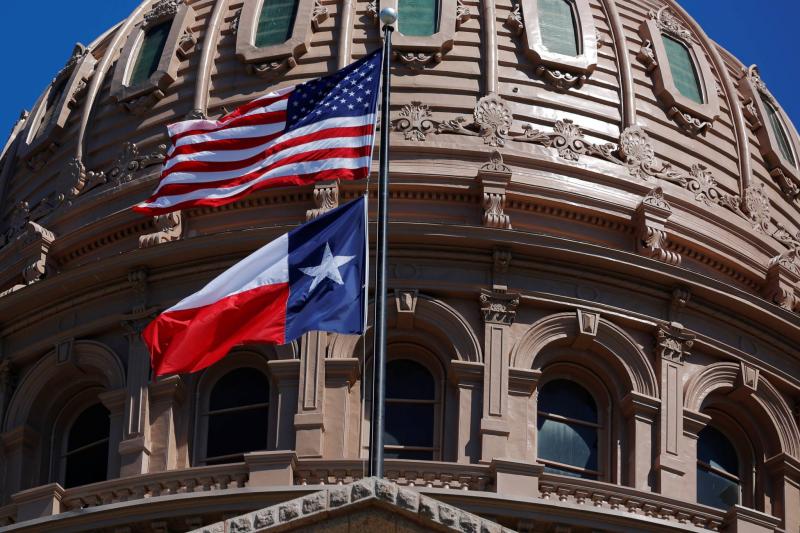With the rapid flow of political "gifts" from major Western countries to Israel in commemoration of the "Nazi Holocaust," and the clear sympathy shown towards its leaders following the international court's stance on what Israel has committed—and continues to commit—in Gaza, it was natural for political analyses to focus on Israeli affairs. However, the accelerating events in the United States have deviated from the norm over the past two weeks. Ron DeSantis, the Governor of Florida, withdrew from the Republican Party's presidential nomination race set for early November, which may have surprised some observers. The man, who many considered an "ideal candidate" for the upcoming elections, decided it was better to minimize his losses and leave the arena early after the first primary election test in Iowa, where he finished second to Donald Trump.
According to assessments of strength and weaknesses among Republican candidates facing the former president and subsequently against the Democratic president Joe Biden, DeSantis had the following advantages:
1. He is a candidate with an unquestionable strong conservative right-wing stance, in a party where the influence of far-right conservatives is rapidly and vigorously growing.
2. He is among the young politicians expected to shape the future of the Republican Party in the post-Trump "personalism" era.
3. He is one of the politicians who early recognized the importance of taking a stand against immigration and asylum seekers, thus aligning himself without reservation with the political "Trumpism," and at times it seemed like he was outdoing its "founder"... the proponent of the "border wall" with Mexico.
4. He is the governor of the third most populous U.S. state, which is also one of the three largest "Latin states" (after California and Texas), and along with Texas, it has become a key stronghold for the Republican Party.
Despite this, it appears that, at some point and at some time, DeSantis's advantages worried his "mentor." Thus, in Trump's eyes, the man transformed from a gifted student to a fierce rival eager for succession. The truth is, Trump's sensitivity to any serious candidate emerging from the right has been increasing in parallel with the growing skepticism many have about his ability to complete his campaign until next fall, amid the "maze" of legal cases and the "mines" of political allegations surrounding him.
This reality is further confirmed not only in Trump's stance towards DeSantis but also towards his second competitor Nikki Haley (the former Governor of South Carolina), who has become the only serious contender against Trump following the Florida governor's withdrawal. Haley may benefit more if the former president's problems accumulate and the provocations he creates, or sometimes slips into, increase. Indeed, recently, sober party voices emerged after the Iowa test and the primary election in New Hampshire, urging Haley to move forward with her candidacy against Trump to avoid the party finding itself facing the unknown... should something unexpected occur with him in the coming months.
Moreover, the recent court ruling against Trump in the defamation case brought against him by writer E. Jean Carroll, imposing over $83 million in damages, is not the first and may not be the last, while the former president continues his usual approach of "stirring" his supporters by accusing the current administration of targeting him and using the judiciary to fight him.
Meanwhile, there is another potential "successor" to Trump who has discovered the "virtues" of "mobilizing" and populist "stirring" methods to assert himself in the arena, namely Texas Governor Greg Abbott. Abbott, governing a state bordering Mexico with a long (political, cultural, and bloody) history with it, has decided that his state will combat immigration and asylum at the border through its own means, without returning to the federal government. The U.S. Supreme Court (despite its right-wing majority) ruled last Monday, by a one-vote margin (5 to 4), in favor of the federal government's right to remove barbed wire fences placed at the border with Mexico.
However, Abbott—belonging to the far-right of the Republican Party—decided to challenge the court's ruling and the government's policy, which he accuses of being lenient on immigration, by increasing the number of barbed wire fences. He then encouraged his counterparts among far-right Republican state governors to defy Washington's authority and commission the National Guard in each state to protect its borders. Indeed, six states joined Texas; among them Florida, bordering the Caribbean, and Montana in the far north, bordering Canada.
This rebellion recalls the spark of the American Civil War in 1861 when South Carolina militarily rebelled against the federal government's anti-slavery policies, firing the first secession shot from Fort Sumter in Charleston. The pretext back then—as it is today—was the "states' rights" in a federal political system where the center (i.e., the central government) does not impose its will on the constituents (i.e., the states). The new challenge is the second in modern American history, following Trump supporters storming the Capitol, the seat of federal legislative power, on January 6, 2021... after the outgoing president refused to acknowledge his election loss a few months prior.
America, the world's leading power, is suffering from extremely serious structural issues, chief among them the collapse of the "broad national consensus" on political principles and constants, including explicit disagreements on the definition of democracy, political legitimacy, judicial independence, and the transfer of power, not to mention the trivialization and threatening of public freedoms... including academic and media freedoms. The collapse of such a broad consensus in a pluralistic entity, within a climate of severe exclusionary polarization and the freedom to bear arms... poses significant threats.




